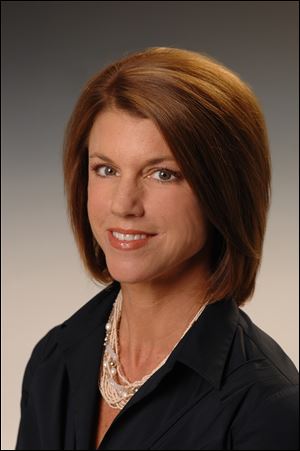
GUEST COMMENTARY
As school year proceeds, so should our conversations about drugs
‘Start Talking!’empowers parents to talk to young people with confidence
9/21/2014
Kasich
The transition from long summer days to a flurry of back-to-school activities has been a hectic time for families throughout Ohio, including mine. Each school year holds something new and promising for Ohio’s children — new classes, new friends, and new experiences.
In our effort to keep up with what’s changing and trending with our kids, we also need to remember that among all that’s positive, there will also be new pressures, challenges, and dangers. Regardless of your hometown or economic status, one of the dangers lurking in your neighborhood — in every neighborhood, school system, and community — is illegal drug use.
As parents, guardians, family members, and mentors, we have to be vigilant — and confident — in supporting the young people in our lives as they face these challenges. That’s why Ohio launched “Start Talking!” — a drug abuse prevention initiative aimed at reaching our adolescents and teens.
None of us can fully shield our children from exposure to drugs, although we certainly try. But we can let them know of our concern and care, and empower them to make good decisions. We can educate ourselves, connect with our communities, and start talking to our kids about drugs.
You may be surprised to learn what a powerful tool conversation can be; I was. Research shows that children whose parents talk early and often about the dangers of alcohol, tobacco, and other drugs are 50 percent less likely to use these substances in the first place.
But for many of us, having those conversations can be easier said than done. As parents of twin 14-year-old girls, my husband and I too have wrestled with just what to say and how to say it.
Under my husband’s leadership as governor, Ohio is attacking the drug abuse and addiction problem on multiple fronts by involving medical professionals, law enforcement officers, state agency directors, and community organizations. But we also have to face our own fears as parents and talk directly with our kids about drugs — the drugs on the street, and the drugs in our medicine cabinets.
A dramatic increase in prescribing over the past decade has brought dangerous medications into the homes of most Ohioans, averaging 67 pills for every man, woman, and child in the state. Prescription medications too often are a gateway to other drugs; prescribed opiate painkillers are the same chemical as heroin.
As a result, addiction to prescription pain medications often gives way to the cheaper alternative found on the street, which is cut with all types of additional poisons. Unintentional drug overdoses have become the leading cause of accidental death in Ohio. An Ohioan dies from a drug overdose every five hours.
The first line of defense in preventing these tragedies is talking with the young people in our lives. The “Start Talking!” initiative includes a Web site that offers tools for parents, teachers, and community leaders in presenting the facts to our young people (StartTalking.Ohio.gov).
You can find out how to monitor, secure, and properly dispose of unused and expired prescription medicines. You can also learn how to connect with your schools, your neighbors, your faith-based communities, and your state leaders to put a wealth of drug prevention knowledge into practice.
In addition, I encourage you to like the “Start Talking!” Facebook page, where we hope citizens will put a face and heart to the issue and compel their communities to take action.
In talking with our kids about tough issues such as drugs, getting started is often the hardest part. It can feel awkward — nerve-racking, even. But it doesn’t have to be. “Start Talking!” gives parents and other adults the support we need, empowering us to have these conversations with confidence.
As our kids begin the experiences and stresses of a new school year, it’s a key time to keep the lines of communication open. I encourage all Ohio families to start talking — and continue talking — to keep our children’s future promising, by helping them resist peer pressure and make healthy decisions.
Karen W. Kasich is first lady of Ohio.